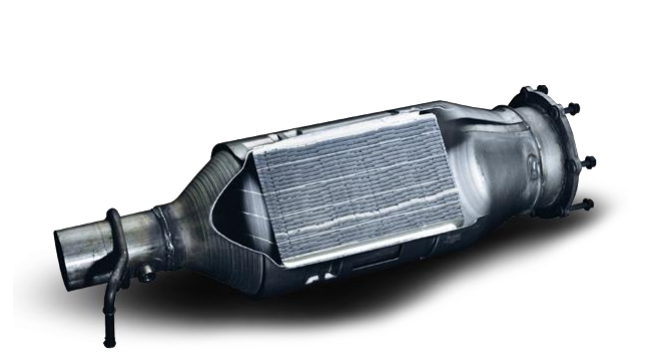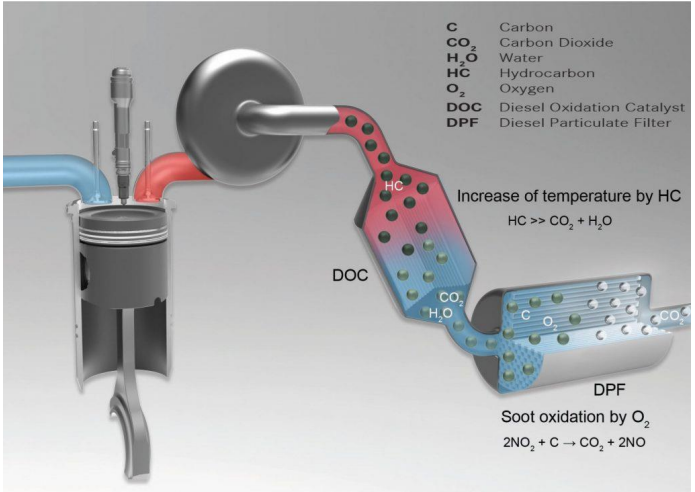Demystifying Diesel Particulate Filters (DPF)
In the ever-evolving landscape of automotive technology, Diesel Particulate Filters (DPFs) have emerged as a critical component, playing a significant role in enhancing both engine performance and environmental sustainability. In this blog, we delve into the inner workings of DPFs, unravelling the mystery behind their functionality and the positive impact they have on vehicles and the air we breathe.
Understanding the Diesel Particulate Filters (DPF)
At the heart of a vehicle’s exhaust system lies the Diesel Particulate Filter, a specialized component designed to capture and remove particulate matter from the exhaust gases emitted by diesel engines. This particulate matter, composed of tiny particles and soot, is a by-product of the combustion process in diesel engines. The DPF serves as a guardian, preventing these harmful particles from being released into the atmosphere.

How DPFs Work:
Capture and Accumulation: As exhaust gases pass through the DPF, a series of porous channels trap particulate matter. This initial capture phase is crucial for preventing these particles from entering the air we breathe.
Regeneration Process: Over time, the accumulated particles create a build-up within the DPF. To prevent clogging and maintain optimal performance, DPFs undergo a process called regeneration. There are two primary types of regeneration: passive and active.
Passive Regeneration: This occurs naturally during regular driving conditions, where the exhaust temperatures are high enough to burn off the collected soot.
Active Regeneration: In cases where passive regeneration is insufficient, the engine control unit initiates active regeneration. This involves increasing exhaust temperatures through various methods, such as adjusting fuel injection or using an additional catalyst, to facilitate the burning off of accumulated particles.
Clean Exhaust Emission: Through the capture and regeneration process, DPFs ensure that the exhaust gases exiting the system are considerably cleaner, reducing the emission of harmful particulate matter into the environment.

Benefits of Diesel Particulate Filters:
Environmental Impact: DPFs play a crucial role in reducing air pollution by capturing and preventing the release of particulate matter into the atmosphere. This aligns with global efforts to mitigate the environmental impact of vehicle emissions.
Engine Performance: By maintaining a cleaner exhaust system, DPFs contribute to improved engine performance, fuel efficiency, and overall longevity. A well-functioning DPF ensures that the engine operates at its optimal level.
Regulatory Compliance: Many regions have established stringent emission standards, and DPFs are integral in helping vehicles meet these regulations. Compliance not only promotes environmental responsibility but also prevents potential fines and penalties.
In essence, Diesel Particulate Filters stand as a testament to the automotive industry’s commitment to cleaner, more sustainable transportation. By understanding the inner workings of DPFs, drivers and vehicle owners can appreciate their role in creating a healthier environment and ensuring the longevity of their vehicles. As we embrace advancements in technology, DPFs remain a cornerstone in the pursuit of a greener, more sustainable future on the roads we traverse.
Reference links:
https://www.uti.edu/blog/diesel/diesel-particulate-filters
https://en.wikipedia.org/wiki/Diesel_particulate_filter
